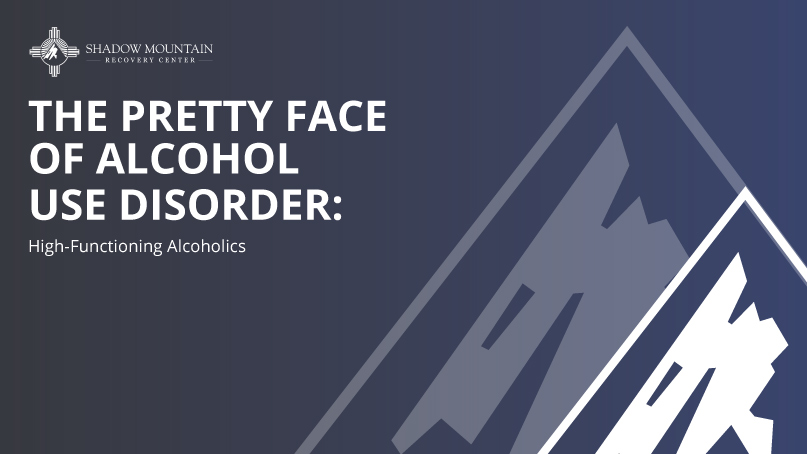High-Functioning Alcoholic
What Is a High-Functioning Alcoholic?
High-functional alcoholism can look different from person to person. That being said, what makes somebody a high functioning alcoholic is the same across the board. A high functioning alcoholic is somebody who is dependent on alcohol but maintains a normative – and even successful – work and social life.
From the outside looking in, functional alcoholics may seem completely healthy. Many lead outgoing social lives, are high-achievers in their career fields, have seemingly happy homes, and may even engage in what appear to be healthy and enriching hobbies like running or golf.
What is not as evident is that these people are most likely dealing with intrusive thoughts and alcohol cravings on a daily basis. They may be unable to turn down a drink or abstain even when they intended not to drink. They may have multiple failed attempts at quitting drinking and may feel attacked or even get defensive when people bring up the amount that they drink. High functioning alcoholics may also deal with a number of physical and mental health issues that stem from their drinking. Research has shown that one in five working age (20-65) people in New Mexico die from alcohol related causes. Even people with high functioning alcoholism are not immune to the dangers that alcohol use poses.
The symptoms of alcoholism are not always apparent, even to the person who has the alcohol use disorder. Many high-functioning alcoholics work to conceal their drinking habits and, because they are so high-functioning, the people around them are rarely the wiser to their addiction.
Signs of High-functioning Alcoholism
That does not mean that there are no symptoms that can be watched for though. On the contrary, it is the little things adding up that often turn people onto the suspicion that they may have a loved one who is a high functioning alcoholic. Some of the warning signs of high alcoholism to be aware of include:
- Drinking to relax, numb, or feel confident
- Hiding drinking habits, adding alcohol to other drinks to hide it (coffee, pop, etc.)
- Becoming agitated or defensive at the mention of alcohol use
- Drinking at inappropriate times (morning, with each meal, etc.)
- Drinking alone
- Hiding alcohol so as to conceal the amount being drank
- Friend and family excuse drinking habits OR voice concerns
- Joking about being an alcoholic or drinking too much
- Bragging the amount they can drink
- Drinking when they’d planned not to
- Talking about alcohol or mentioning going out for drinks in excess
A person with high-functioning alcoholism may have one, a few, or many of these symptoms. They can appear severe or be something that is noticed in passing. Regardless, if you or somebody you know is exhibiting these kinds of behaviors, it may be time to take a closer look to see if they might be struggling with an undiagnosed alcohol use disorder or if something else is going on. It is important to remember that most people’s idea of an alcoholic is rarely, if ever, met by people with high-functioning alcoholism.
Common Careers of Those with High-functioning Alcoholism
While high-functioning alcoholics tend to obfuscate the most common signs and symptoms of alcoholism, there have been identifiable career sets where alcoholism, especially high-functioning alcoholism, is most prominent. Studies have found that the following careers experience the highest rates of high-functioning alcoholism:
- Lawyers & Legal Professionals (judges, attorneys, support staff): High caseloads, strict deadlines, dissatisfied clientele, and high pressure work environments are not uncommon in the legal field and many attorneys are working towards partnerships or elected positions all while maintaining their practices. Some studies suggest that 1 in 5 attorneys have high-functioning alcoholism.
- Healthcare Professionals (doctors, nurses, social workers, counselors, etc.): Working long hours in highly stressful situations, having high caseloads, and experiencing traumatic situations, healthcare professionals report high levels of alcohol use. Surgeons and physicians are notably susceptible to alcoholism with nearly 15% reporting high levels of alcohol usage.
- Miners & Construction Workers: People in extremely physically demanding jobs often experience bodily harm and pain from their work. Many of these people are not in the position to take extended time off of work to heal, or start new careers. Oftentimes, alcohol is used to cope with the wear and tear these individuals face.
- Hospitality & Food Services Workers: Not only is alcohol more available to hospitality and food services workers at their place of employment, but these jobs are very often understaffed and the employees overworked. Workers may choose to take the edge off of the physical and mental demands of these jobs by drinking before or after hectic shifts.
- Real Estate & Insurance Agents: In these lines of work, many times there are sales quotas to be met in order to meet job requirements, to achieve advancement, or even earn more pay. These stressors, as well as the potential for failure to meet these goals, can drive employees toward heavy drinking.
- Educators (across all roles, grades, and education levels): The education field is unique in that educators are not only responsible for the education of their students, but also for the management and safety of those students as well. Along with meeting standard educational expectations, many teachers often deal with disgruntled parents, disruptive students, and poor work-life balance due to the demands of grading student work. This intense balancing act leads educators across grade-levels towards alcohol consumption as a means of handling the various stresses of their work.
- Those in Managerial Roles: People in management often deal with the running of businesses, the management of employees, and often the placement of customers. These stresses can lead to an increase in drinking alcohol.
- Arts Careers: Roughly 11.5% of people in the entertainment and arts industries report heavy alcohol use. This may be caused by the stresses to create new work, impending deadlines, rejection and criticism that are natural to those careers, or other factors.
While these careers may seem disjointed at first glance, they all share commonalities in being high-stress, irregularly houred, physically demanding, and psychologically taxing. To be clear, these are not the only careers where high-functioning alcoholism is present. By nature, high functioning alcoholics can maintain careers of almost any kind, blend in, and even thrive in their careers.
Glancing at the list of careers listed above, it should be noted that, while each of these career paths have similar elements of being high stress, they range drastically in pay scale, education level, worker socioeconomic status, and diversity makeups. High-functioning alcoholics are extremely difficult to pinpoint because they are so often successful in their careers, maintaining a relatively normal social life, and have little to no definition outside of the fact that they have a well masked alcohol use disorder.
What’s more is that, many times, high-functioning alcoholics often do not realize that they have an alcohol use disorder. As difficult as it is to spot high-functioning alcoholics in a crowd, it is often equally as difficult to recognize the signs of alcoholism in one’s self if other areas of life are still thriving.
How Do I Know if I Have a Problem?
While admittedly difficult, it is by no means impossible to discern whether you or a loved one have high-functioning alcoholism and it is important to try if you believe they are. New Mexico specifically has the highest alcohol-related death rates in the nation. The amount of people openly struggling with alcohol use disorder is only half the battle when you consider the entire subpopulation of people with high functioning alcoholics who never reach out for help or are never addressed about their drinking. It can be a difficult thing to admit to yourself that you or a loved one have a problem. It can be even harder to ask for help.
After all, people rarely take their first drink of alcohol with the intention of developing an alcohol use disorder. On the contrary, people usually begin drinking alcohol as a way to relax, have fun, cope, sleep, fit in, or sometimes just because it’s available. Because of these nearly humble beginnings, people often cannot tell when their drinking has crossed the line from carefree to compulsive.
Many people with high functioning alcoholism deny that they have a substance use disorder to themselves and those around them on the grounds that their life, at least at the moment, is going fairly well.
Even when occasional thoughts creep into their mind such as, Maybe I shouldn’t be drinking this much… or Am I an alcoholic?, many people will excuse the drink in their hand by telling themselves that their life is great, other people are drinking, they’ve never been in trouble for drinking, or that they only drink “the good stuff”, among countless other self-soothing gestures.
But, as we have learned, the apparent quality of a life does not discern someone struggling with alcoholism. The amount of alcohol being consumed and the symptoms being shown are what need to be consulted to challenge denial.
There is an old saying, “if it looks like a duck, swims like a duck, and quacks like a duck, then it is probably a duck”. Glancing back at the lists of symptoms and at-risk careers for high-functioning alcoholism, if you or a person you know meets these criteria there is a high chance that they have high-functioning alcoholism whether they know it or not. Here is a list of questions that you can ask yourself or a loved one to help you begin to discern whether you or your loved one have an alcohol use disorder:
- When you start drinking, do you find it difficult to stop, perhaps telling yourself and others “it’s just one more”?
- Do thoughts of alcohol take up space in your mind? Are you constantly, or even periodically thinking about alcohol over the course of a day?
- Have you ever hid how much alcohol you are drinking or disguised alcohol as another drink to conceal it from others?
- Have you tried to cut back on drinking without success?
- Does it ever cross your mind that you are or do you joke that you might be an alcoholic?
If you said yes to any of these questions, then it is perhaps time to take an honest look at your drinking habits and have a conversation with a trusted care provider to get their perspective on your drinking.
For many people with high-functioning alcoholism it may seem silly to address their drinking when everything in life is going well. Disturbing the precariously balanced life that they have constructed can feel like an attack and a validation that there is indeed trouble in paradise. That being said, it is important to address and find help early on in addictions. Research shows that early intervention in any addiction can make all the difference in chances at lasting recovery.
While many functional alcoholics feel, at least at the time being, that they are holding things together well and that their drinking habits are possible to maintain with their current life circumstances, they could not be more wrong. It is best to reach out for help early before everything begins to start coming apart at the seams.
What Kind of Treatment Is Right for Someone Struggling with High-functioning Alcoholism?
While 80% of people struggling with excessive drinking or high functioning alcoholism seem to inevitably gain control of their drinking, learn to self-moderate their habits, or just quit altogether, this can be easier said than done. There are multiple ways that a person can begin to work on curbing their drinking habits on their own if they are not ready or have no desire to reach out for treatment. Some of these skills include:
Put it In Writing & Say it Out Loud: Thoughts are private and many times we think things that we never carry out. By writing down your intention to quit drinking, why you want to quit, and your plans to help you abstain, it can make the commitment more “real” and tangible and can give you something to look back at when things are difficult. By keeping your plan with you or in a visible spot, it can also help to keep your goals central in your mind. You can also read your plan out loud to yourself. This is another way of bringing your thoughts into reality.
Set Goals, Track Drinking, & Reward Success: Quitting cold-turkey, while successful for some, is not going to work for everyone. Setting goals on how much or how little you drink in a day can give you active goals to work towards, and by tracking how much you have drank it can help you to visualize what your next steps need to be. Also, do not forget to reward yourself (non-alcoholically of course!) when you have met your goals. You deserve it.
Drink Slowly & Intentionally: It can be hard to break old habits. If you are used to drinking multiple drinks in one sitting, try to slow down drinking alcoholic beverages to make them last longer, or even order a water on the side to drink at the same time. This will help you drink less, but also can satiate some of the desire to have another drink nearby.
Remove Alcohol from Home & Work: Many functioning alcoholics have access to alcohol at both home and at work. By removing alcohol from these areas it can limit drinking and decrease the likelihood that a person will drink at an “inappropriate” time.
Ask for Support: Accountability and support are important parts of any recovery journey, but can be especially helpful if a person is trying to self-regulate.
It is important to keep in mind that self-regulation is hard and it will not work for all people. Luckily, there are options to turn to when cutting back gets too hard to handle on your own.
If self-regulation is not working, there is never shame reaching out for help. This can look like reaching out to medical doctors, therapists, treatment programs, and other professionals who are trained to handle substance use disorders. In the same way that athletes need coaches, and scholars need tutors, we sometimes need the help of professionals to get us where we want to be. Just like you don’t win the SuperBowl or a Pulitzer without a little help along the way, you may need somebody to give you the push that you need to succeed in curbing your alcohol consumption.
It should also be mentioned that, despite hesitancy from people with high functioning alcoholism towards it, they will often benefit from similar treatment programs as other people with alcoholism. Shadow Mountain Recovery offers recovery options such as detox and residential care. People with high functioning alcoholism are often alcohol dependent and benefit from recovery options such as detox and residential therapies.
How to Talk to a Loved One About Their Use
Intervening in the life of a person with high functioning alcoholism can be tricky. After all, sitting a person who has a steady job, a decent family and social life, and is otherwise holding things together down for an intervention can seem awkward and perhaps even offensive. Even so, it is a necessary conversation to have and one that could inevitably save their job, their relationships, and even their life.
While many high functioning alcoholics have plenty of things going well for them, as their addiction continues, some things begin to slip. It may seem harsh, but it can actually be beneficial to bring up that you are noticing things beginning to slip. When you do this, it is important to be firm, but not attacking or accusatory. You don’t want to put your loved one one the defensive, only let them know that they are not concealing their addiction as well as they might believe. Many people with functioning alcoholism have held things together for so long that they may not notice when they start to let things slip. Pointing this out can act as a first wake up call.
After bringing their addiction to light, it is vital that you offer continued support. While this can include emotional and familial support, it is also important to offer your loved one options for getting help. This can include at-home accountability, an initial visit to a doctor, starting counseling, or, if they are receptive, entering a alcohol treatment program for their addiction. It can take time for people with alcohol use disorders to come to terms with the fact that they need help. It is important to be patient and respectful while you walk with them on their path to recovery.
As a loved one of somebody with high-functioning alcoholism, it can feel as though they have been deceiving you or lying to you about their addiction. It is likely that the person with the addiction has not been completely honest with themselves either. Recovery from an alcohol use disorder, whatever the level of functioning, is difficult. Knowing the signs to look for and how to reach out to your loved one with high functioning alcoholism can make all the difference in their chances at recovery. If you believe that you or somebody you love might have high functioning alcoholism, and you have questions or are interested in recovery, reach out to Shadow Mountain Recovery.
Start Your Journey at Shadow Mountain Recovery
Shadow Mountain Recovery is here to help you on your journey. Our goal is to give you holistic treatment that includes evidence-based practices and alternatives to 12-step programming. We have facilities in Albuquerque, Santa Fe, Taos, and Rio Rancho. Call 505-657-2117 to start your journey.










